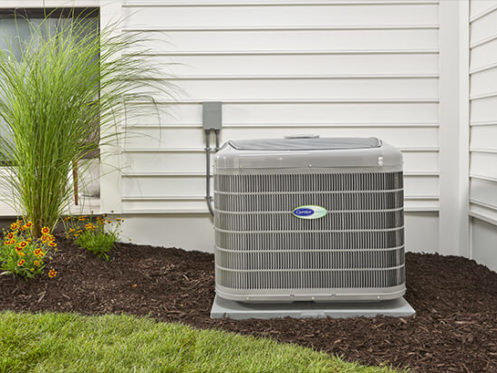HVAC systems are extremely complicated. It takes years of education, training, and experience to learn how to install, repair and maintain them safely and correctly. The fact that heating and air conditioning are so complex makes it essential that you always hire a knowledgeable, experienced technician whenever you need any HVAC work performed. The best way to ensure that this is the case is to always choose a NATE-certified technician. Here is a full overview to help you understand exactly what NATE certifications mean and why they’re so important.
What Are NATE Certifications?
NATE stands for North American Technical Excellence, and it is the largest independent, non-profit organization in the United States dedicated to training and certifying technicians to work in the HVAC field. The organization is a coalition between the American Society of Heating, Refrigeration, and Air Conditioning Engineers (ASHRAE) and the U.S. Environmental Protection Agency that certifies technicians to work on heating, air conditioning, ventilation, and refrigeration equipment.
The organization has a nationwide committee of expert HVAC technicians and engineers that work together to develop the various NATE certification exams. The committee first identifies standards known as Knowledge Areas of Technician Expertise, which are key things that a technician must know to work on or install different types of HVAC equipment. They then take these key knowledge areas and use them to create certification exams that ensure a technician has the requisite knowledge and skills.
How HVAC Technicians Get NATE Certified
For a technician to earn a NATE certification, they must first pass a series of different exams that test their knowledge in certain areas, and the technician must earn at least a 70% score on each test to pass it. The technicians can choose from a variety of different tests depending on what area they want to specialize in and their desired level of certification.
Before the technician is eligible to take any of the certification exams, they must first pass two other tests that are designed to test their knowledge after they’ve just entered the HVAC field. The first test is the Ready-to-Work exam, which ensures that the technician has the basic knowledge necessary to do certain tasks alongside a certified technician. The technician must then pass the HVAC Support Technician exam, which ensures they have the knowledge to perform certain tasks on their own. Both of these entry-level tests are generally meant to be taken after the person has been working in the field for between six months and a year.
Once the technician has passed the two initial exams, they must continue to work in the field for a licensed HVAC company and under the guidance of a certified technician for at least two years before they can be eligible to take the final certification exams. The technicians can then become certified in one of two ways depending on the level of certification they want and whether they want to specialize in a specific area.
The Traditional NATE certification route is generally for technicians who want to specialize in a specific area. This pathway requires that the technician pass the NATE core exam, which consists of 50 questions that cover a wide range of general HVAC knowledge. The technician must then also pass at least one NATE specialty exam to earn their certification. The specialty exams consist of 100 questions related to a specific area such as furnace installation, furnace service and repair, ground-source heat pump installation, AC repair, etc.
Technicians can also choose the Certified HVAC Professional (CHP-5) route if they prefer a general certification without any specializations. To obtain the certification this way, the technician must pass five different exams covering the following areas: HVAC Fundamentals, Airflow and Comfort, Installation, Service, and Electrical and Controls.
Technicians can also choose to go beyond the standard NATE certification and earn their Senior Level Efficiency Analysis certification. To be eligible for this higher certification, the technicians must currently hold at least one specialty certification in heating and at least one specialty cooling certification.
NATE Recertification and Continuing Education Requirements
NATE certifications aren’t just a one-time thing as all technicians must renew their certifications every two years. This is true for every certification with the exception of the ground-source heat pump installation certificate, which only needs to be renewed every three years instead.
Technicians can get recertified in one of two ways. They can take 16 hours of continuing education courses through the NATE website and then pay a fee to renew their certification. The other option is to simply retake the exams for their specialty certifications before the current certification expires, in which case they don’t need to pay the renewal fee.
If the technician does not renew their certifications within 120 days of the date that the current certification expired, their certification will lapse. In this case, they will then need to complete all of the exams in either the Traditional NATE certification or the CHP-5 pathway to become recertified.
Reasons You Should Always Choose a NATE-Certified Technician
Whenever you need any work done on your HVAC system, you should always make sure that the technician is NATE certified. One reason is that most HVAC manufacturer’s warranties stipulate that the installation as well as maintenance and repairs must be done by a certified technician or else the warranty automatically becomes void. In addition to warranty considerations, below are just some of the other reasons why it’s always best to work with a certified technician.
Guaranteed Knowledge and Experience
As you’ve seen, NATE has extremely strict requirements and holds technicians to the highest standards. When you choose an NATE-certified technician, you can be certain that they have extensive training, education, and real-world experience with installing HVAC units or troubleshooting any problems. This can help to give you added peace of mind knowing that whatever work you need to have done will be performed correctly and according to industry standards. The fact that the technicians must be recertified every two years also means that you can be certain that they are up-to-date on the latest practices and standards and the newest types of equipment.
Improved Performance and Less Money Spent on Repairs and Maintenance
All NATE-certified technicians are extremely knowledgeable and have years of experience in the industry. This is important as HVAC systems will always perform better and be more energy efficient when they are properly installed, maintained, and serviced or repaired. As long as the system was installed and properly maintained every year by a certified technician, it should run smoothly and work effectively. This means the system will use less energy and typically have fewer repair and maintenance requirements.
At Buehler Air Conditioning & Plumbing, we proudly employ a team of highly qualified, NATE-certified technicians that can handle all of your home’s heating, cooling, and indoor air quality needs. If you need to install any new HVAC unit or replace your existing unit, we are a Carrier Factory Authorized Dealer and we carry an extensive selection of options for you to choose from. Our technicians can also take care of all of your heating and air conditioning repair and maintenance needs promptly and professionally so give us a call today to see what makes us the best HVAC company in Jacksonville.




